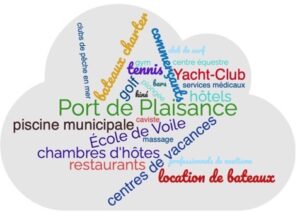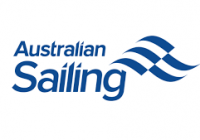By Jean-Michel Gaignè, CMM – GMBA
*This article has been originally published in French, to address the marina operators in Brittany, France.
During a speech at the Nautik Deiz conference organized by the Brittany region last October, I introduced the different modes of management of marinas on an international scale, briefly sketching the panorama of their particularities, pros and cons, with the desire to outline potential solutions that could inspire a Breton model.

The private operation model: the customer is king, the goal is to make more money
Marinas are in fact mainly managed by private companies in most countries of the world, from Australasia to the Americas or from Europe to the Middle East. These may be specialized groups bringing together several dozen marinas, such as MDL, Premier Marinas, or Boatfolk in the United Kingdom, Suntex in the United States, D-Marin in Greece, Croatia or Turkey, d’Albora Marinas in Australia, and even groups present in several markets, such as IGY Marinas. It can also be a simple family business which manages a marina and the associated services, like operating a hotel or a campsite. The common points of this management model are that the level of service is generally high and the whole value chain is controlled by a single operator. This would include the moorings to the lifting facilities, from the boat park to the repair, maintenance, and sale of boats; the restaurant, the grocery store, the swimming pool, the fitness center; maybe even the sailing school or the adjacent hotel.
The undeniable advantage comes from a single interlocutor, controlling all levels of the service to satisfy the client, meeting its least expectations, or even anticipating them, with the ulterior motive of making an ever-increasing financial profit. For the customer, it is often the guarantee of personalized services of unparalleled quality, although it comes at a higher price.
The cooperative model: the customer is me!
There is an intermediate model between public management and private enterprise. This is what I have called the cooperative model, which is most frequently operated by yacht clubs or non-profit associations. Very widespread in Belgium and the Netherlands, it is also found in Spain and diffusely in various countries. Here again, most of the time, the scope of operation goes beyond the simple management of floating berths to incorporate hard standing boating areas and lifting facilities, the running of a club house with bar, restaurant, wintering sheds, a workshop, even shared tools, in some cases.
Although more limited than in a private management scenario, the services considered essential are integrated and those offered to boaters are generally richer than in our Breton marinas, which are publicly operated. Above all, they have the advantage of being limited to what boaters themselves expect from their favorite home marina, since they control their choice, take the decision, and set the price!
Public management: the client… which client?
I do not want in any way to criticize the public management of our Breton marinas, whether municipal authorities, joint syndicates, autonomous public services, mixed ownership public companies, local public corporations, or chambers of commerce. Many of them can be cited as positive examples on a number of points and have guided the development of marinas in other regions. It is above all the legacy of history, and a model of public management very prevalent in our country, which can be found only anecdotally in most other countries, with the notable exception of Sweden, and a few yacht harbours around the world.
But if progress has been made over the years, which, beyond the floating berths, makes it possible to offer services such as boat lift, boat parking on land, dry stack facilities, bicycle rental, or even a sauna or toilet blocks with real bathrooms, the marinas do not directly manage the extras. Those are in the hands of different service providers, even if in the end, they contribute to the overall quality of service offered to boaters. This is the case for boat maintenance yards, restaurants around the port, golf course, swimming pool, gym, food store or even a hotel. The result is that for each of these services, the customer must contact a third party of which he is a simple customer, and not a privileged one, on the grounds he holds a mooring contract in the local marina, whether as a permanent resident or a transient boater.
No longer a client, but a “Guest ar Vro” **
Several challenges arise from this devolved management structure. The restaurants around the port can all be closed on a Sunday evening, even though the marina receives visitors; the tennis club can refuse access to a yachtsman because he is not a member; the repair boatyard can use an overworked excuse to postpone a technical intervention and force a visiting boat to wait several days; this list could be extended with multiple examples.
This is the reason why I suggest creating a sort of “club of service providers” at the level of each port, which would mutually commit to ensuring a quality service for yachtsmen. They would coordinate to give the customers accessibility to the whole commercial, leisure and hospitality offer provided in each locality. Thus, each customer of the marina would be considered as a privileged consumer, a “temporary” member of the golf club or fitness center benefiting from specific access conditions, if he has a contract in the marina. I called this client “guest ar Vro” which no longer makes him an ordinary individual, but a client common to all stakeholders, entitled to expect a special attention. This type of organization already exists in another industry, the ports which welcome cruise ships having created “cruise clubs” which bring together and coordinate all the service providers in the value chain, from shipping companies to custom agents, tourism professionals, coach operators and even retail shops.
By embracing such an initiative all over Brittany and by transforming our customers into “guest ar Vro” with all the service providers committed to satisfying them, we could thus significantly raise the level of service offered in our marinas. We can get closer to the best examples of private marinas, while maintaining our singular model of public management with a limited scope, that will probably never change, because it is part of our history for over 50 years now.
Another advantage, and not the least important one, would be also to reciprocally open our marinas more widely to those practicing other activities, in coordination with our nautical clubs and our boat charter companies. The members of the riding club, those of the golf club or tennis, those who stay at the hotel on the quay, or have lunch at the port restaurant could perhaps become our customers of tomorrow!
** “Guest ar Vro” means “Guest of the country” in Breton language
Jean-Michel Gaignè, CMM
Jean-Michel Gaigné is a long time expert in the yachting sphere and has an extensive knowledge of the European and international marina industry. His career started 40 years ago as organizer of the famous Tour de France à la Voile sailing event after which he changed tack to become the Communications Manager of a worldwide nautical company. He has been developing marina facilities since the early 1990’s.

A prominent representative of the French marina industry, Jean-Michel is a member of the ICOMIA Marinas Group, Chairman of TransEurope Marinas, Member of the advisory board of Global Marina Institute and member of The Yacht Harbour Association Council. Prior to joining GMBA, Jean-Michel was part of the management of Saint-Quay Port d’Armor, a 1000+ berth marina in Brittany, France. He now acts as a marketing, development and innovation consultant for marinas, marine tourism, cruise ships and waterside activities.
Jean-Michel is based in France. Those wishing to contact Jean-Michel can do so on + 33 682 112 524 or email at
Those wishing to contact GMBA in Australia can do so through MaryAnne Edwards or call +61 412 916 036
Global Marine Business Advisors and its associated website www.gmba.blue are not registered legal entities. GMBA is a network of independent marine industry advisors.







